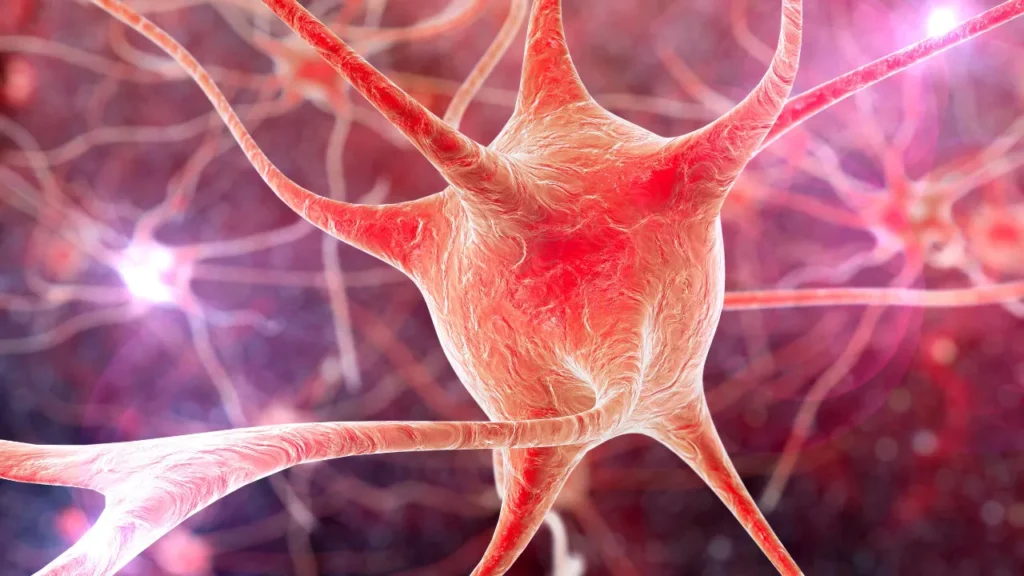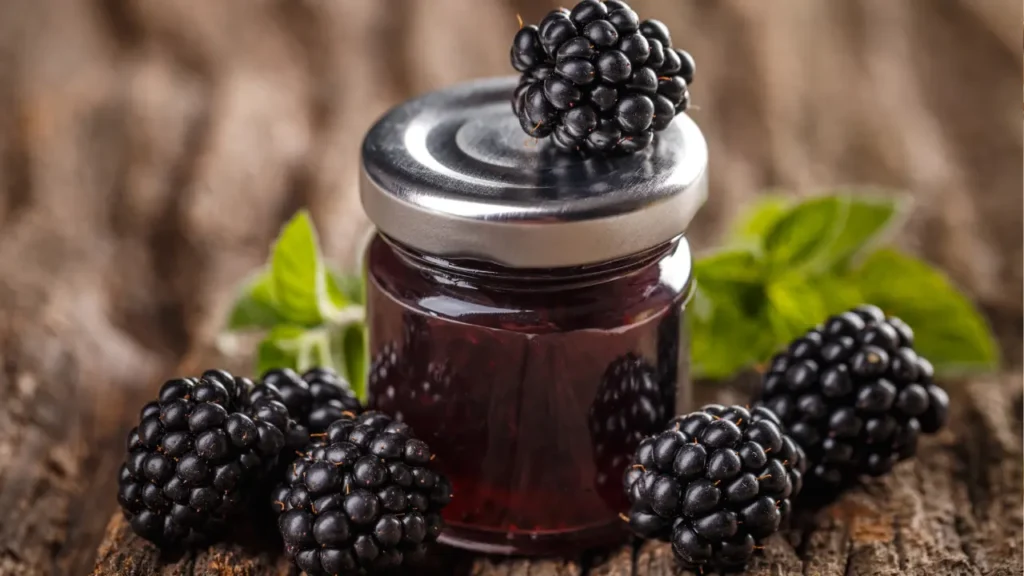Due to its conceivable health advantages, the blackberry (Rubus spp.), a perennial plant in the Rosaceae family, has received a lot of attention lately. Blackberries have been connected to enhanced health outcomes and defense against chronic diseases because they are rich in bioactive substances such as anthocyanins, flavonoids, and other phenolic compounds. The goal of this article is to provide a thorough examination of the chemistry of blackberries, as well as information on their health advantages, recommended dosage, adverse effects, probable drug interactions, and safe use.
You May Also Like:
Sunmed CBD vs. Partnered Process CBD: Finding the Best CBD for Sleep
Bitter Almond: Benefits, Dosage, Side Effects, Drug Interactions, and Other Important Information
Blackberries: Benefits, Dosage, Side Effects, Drug Interactions, And Other Important Information is an original (NootropicsPlanet) article.
Nature of Blackberries
Blackberries are aggregation fruits made up of several tiny drupelets, each of which has a seed. They are from the Rubus genus, which has more than 700 species and is most frequently grown as Rubus fruticosus. Native to Europe, Asia, and the Americas, blackberries flourish in moderate climates with a range of soil types. Their three-meter-long canes, which are thorny, woody stems, begin to bear fruit in the second year after they start to grow.
Health Benefits of Blackberries
Because of their abundance of bioactive substances, blackberries provide a number of health advantages, including:
- Antioxidant qualities: Blackberries include powerful antioxidants known as anthocyanins, flavonoids, and phenolic compounds that combat free radicals, which can harm cells and play a role in chronic diseases like cancer, cardiovascular disease, and neurological disorders.
- Blackberries have been proven to have anti-inflammatory properties by inhibiting pro-inflammatory cytokines and enzymes such as nuclear factor kappa B (NF-B) and cyclooxygenase-2 (COX-2).
- Anticancer properties: Blackberries’ ellagitannins and ellagic acid have shown anticancer properties by causing cancer cells to undergo apoptosis (cell death), repressing the formation of tumors, and halting the spread of cancer cells.
- Advantages for the heart: Blackberries’ anthocyanins have been linked to better heart health by lowering blood pressure, decreasing the oxidation of LDL cholesterol, and enhancing endothelial function.
- Neuroprotective effects: Research suggests that blackberries’ bioactive chemicals may guard against neurodegenerative conditions like Alzheimer’s and Parkinson’s disease by lowering oxidative stress, inflammation, and neuronal damage in the brain.

Chemistry of Blackberries
Blackberries’ bioactive substances have been connected to several health benefits. The most prevalent and extensively researched substances found in blackberries are:
- Anthocyanins: These water-soluble pigments give fruits and vegetables their purple, red, and blue hues. Cyanidin-3-glucoside, cyanidin-3-rutinoside, and cyanidin-3-xyloside are the three main anthocyanins found in blackberries. Anthocyanins may help lower blood pressure, reduce the risk of cardiovascular and neurodegenerative diseases, and modulate gut microbiota.
- Flavonoids: Quercetin, kaempferol, and catechins are just a few of the many flavonoids found in blackberries. These substances have anti-inflammatory, antibacterial, and antioxidant effects.
- Ellagitannins and ellagic acid: Found in large quantities in blackberries, these phenolic compounds have been linked to anticancer, antioxidant, and anti-inflammatory properties.
- Dietary fiber: Blackberries are a great source of both soluble and insoluble fiber. Insoluble fiber facilitates digestion and reduces constipation, whereas soluble fiber supports appropriate blood sugar levels.
- Minerals and vitamins: Blackberries are high in manganese, vitamin K, and vitamin C, all of which are essential for bone health, metabolism, and immune system health.
Physiological Mechanisms of Action
The bioactive substances in blackberries promote health through a number of physiological mechanisms of action, including:
- Anthocyanins and other phenolic compounds in blackberries have antioxidant properties that can scavenge free radicals, lowering oxidative stress and minimizing cellular damage. The prevention of chronic illnesses like cancer, cardiovascular disease, and neurological disorders depends on this mechanism.
- Anti-inflammatory effects: Blackberries can control the inflammatory response by preventing the generation and release of pro-inflammatory cytokines and enzymes like COX-2 and NF-B. This system aids in the defense against chronic inflammatory disorders such as inflammatory bowel disease, asthma, and arthritis.
- Anticancer properties: Blackberries’ ellagic acid and ellagitannins have the ability to alter the cell signaling pathways that contribute to the development of cancer, including apoptosis, cell cycle arrest, and angiogenesis. This method aids in preventing the growth, invasion, and dissemination of cancer cells.
- Health benefits for the heart: Anthocyanins in blackberries can improve vascular function by increasing the generation of nitric oxide, a substance that encourages blood vessel relaxation and lowers blood pressure. Additionally, the antioxidants in blackberries can stop LDL cholesterol from oxidizing, reducing the risk of atherosclerosis and other cardiovascular diseases.
- Neuroprotective effects: The bioactive substances in blackberries have the ability to prevent neurodegenerative diseases through a variety of mechanisms, including lowering oxidative stress, reducing neuroinflammation, and modifying neuronal signaling pathways involved in cell survival and synaptic plasticity. These systems aid in enhancing cognitive function and lowering the risk of Parkinson’s and Alzheimer’s illnesses.
Researchers and healthcare providers can more accurately evaluate the potential health advantages of blackberries and create focused strategies for including blackberries in a balanced diet for the best possible health outcomes by knowing the nature and physiological mechanisms of action of these berries.

Optimal Dosage of Blackberries
Although there isn’t a known optimal amount of blackberries to consume, including a portion of them in a balanced diet can have a positive impact on your health. One cup of blackberries, or roughly 150 gm, is considered one serving and offers about 60 calories, 2 gm of protein, 14 gm of carbs, and 8 gm of fiber.
Side Effects of Blackberries
Although eating blackberries is generally safe, some people may experience mild side effects like:
- Allergic reactions: Though uncommon, some individuals may experience an allergic reaction to blackberries or other parts of the fruit, such as the pollen. Itching, swelling, hives, and breathing issues are signs of an allergic reaction. Stop eating and seek medical advice if you feel any of these symptoms.
- Discomfort in the digestive system: Due to the high fiber content of blackberries, consuming too many of them may result in diarrhea, gas, and bloating. Increase your fiber intake gradually and sip lots of water to prevent these adverse effects.

Potential Substance Interactions with Blackberries
Despite being generally considered safe for consumption, blackberries may interact with some drugs or substances:
- Blackberries are high in vitamin K, which aids in blood clotting and acts as an anticoagulant. Eating a lot of blackberries may make anticoagulant drugs like warfarin less effective. Before drastically increasing your blackberry consumption, talk to your doctor if you are taking an anticoagulant.
- Blood sugar-lowering drugs: Blackberries’ fiber and bioactive ingredients may aid in controlling blood sugar levels. If you are using insulin, metformin, or another diabetes medicine, keep a close eye on your blood sugar levels and speak with your doctor if you need to modify the dosage.
Best Responsible Uses of Blackberries
Take into account the following sensible usage advice to maximize the health advantages of blackberries:
- Eat fresh or frozen blackberries; they have the highest concentrations of nutrients and bioactive substances. Avoid consuming blackberries that have been processed because they frequently include extra sugars and preservatives, such as jams, jellies, or canned fruits.
- Include blackberries in a well-balanced diet: To benefit from blackberries’ health advantages, eat them with other fruits, vegetables, whole grains, lean proteins, and healthy fats in your diet.
- Use moderation: Despite the various health advantages of blackberries, overindulging could cause gastrointestinal discomfort or conflict with some prescription drugs. Aim for a serving size of one cup (about 150 gm) as part of a balanced diet.
Blackberries:
Conclusion
Blackberries stand out as a nutritional powerhouse, offering many health benefits to overall well-being. Incorporating blackberries into a balanced diet offers a delicious and accessible means of enhancing one’s nutritional intake. Whether enjoyed fresh, added to smoothies, or incorporated into various dishes, blackberries contribute to the holistic approach to health, showcasing their significance as a delightful and nutritious addition to everyday meals.

References:
- Chemical composition of blackberry fruit: cultivar differences and effects of ripening. Retrieved from https://onlinelibrary.wiley.com/doi/full/10.1002/jsfa.9749
- Berry anthocyanins as novel antioxidants in human health and disease prevention. Retrieved from https://onlinelibrary.wiley.com/doi/full/10.1002/mnfr.200700002
Important Note: The information contained in this article is for general informational purposes only, and should not be construed as health or medical advice, nor is it intended to diagnose, prevent, treat, or cure any disease or health condition. Before embarking on any diet, fitness regimen, or program of nutritional supplementation, it is advisable to consult your healthcare professional in order to determine its safety and probable efficacy in terms of your individual state of health.
Regarding Nutritional Supplements Or Other Non-Prescription Health Products: If any nutritional supplements or other non-prescription health products are mentioned in the foregoing article, any claims or statements made about them have not been evaluated by the U.S. Food and Drug Administration, and such nutritional supplements or other health products are not intended to diagnose, treat, cure, or prevent any disease.


